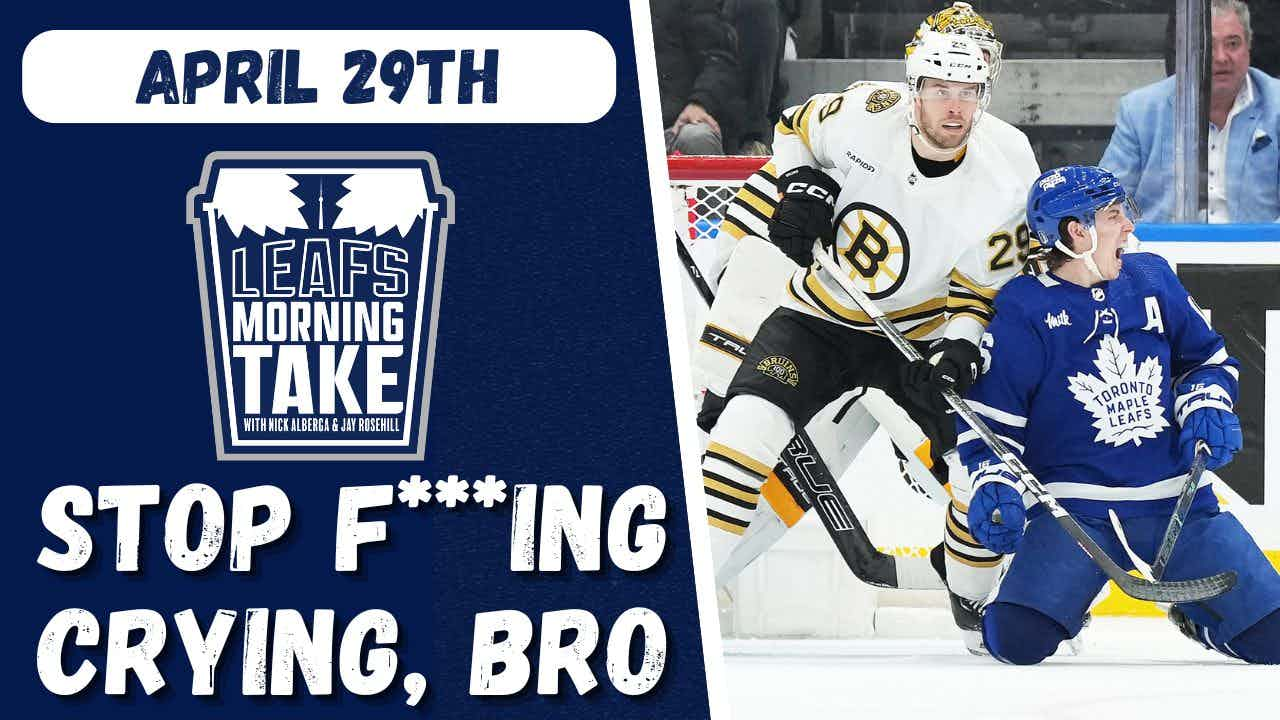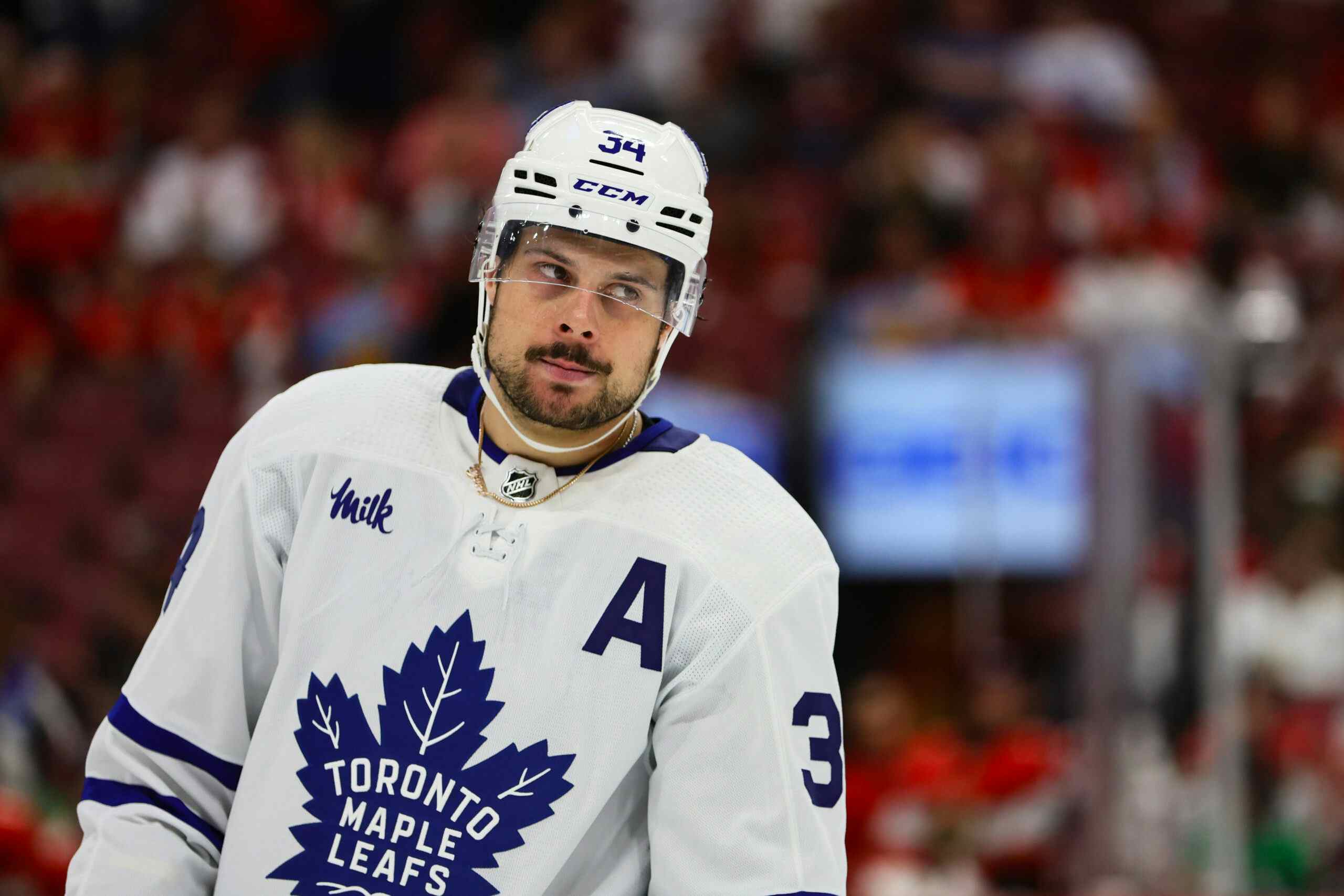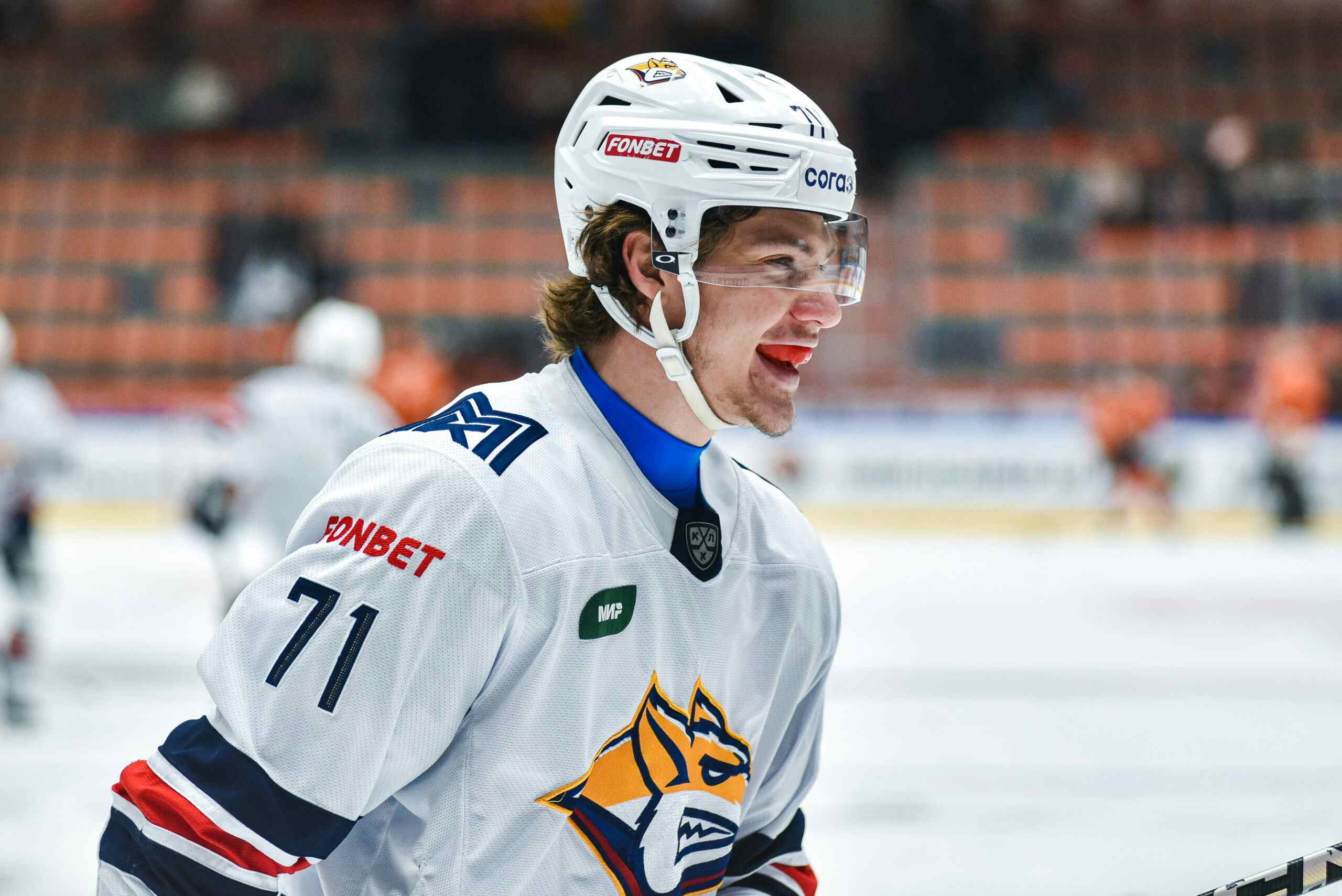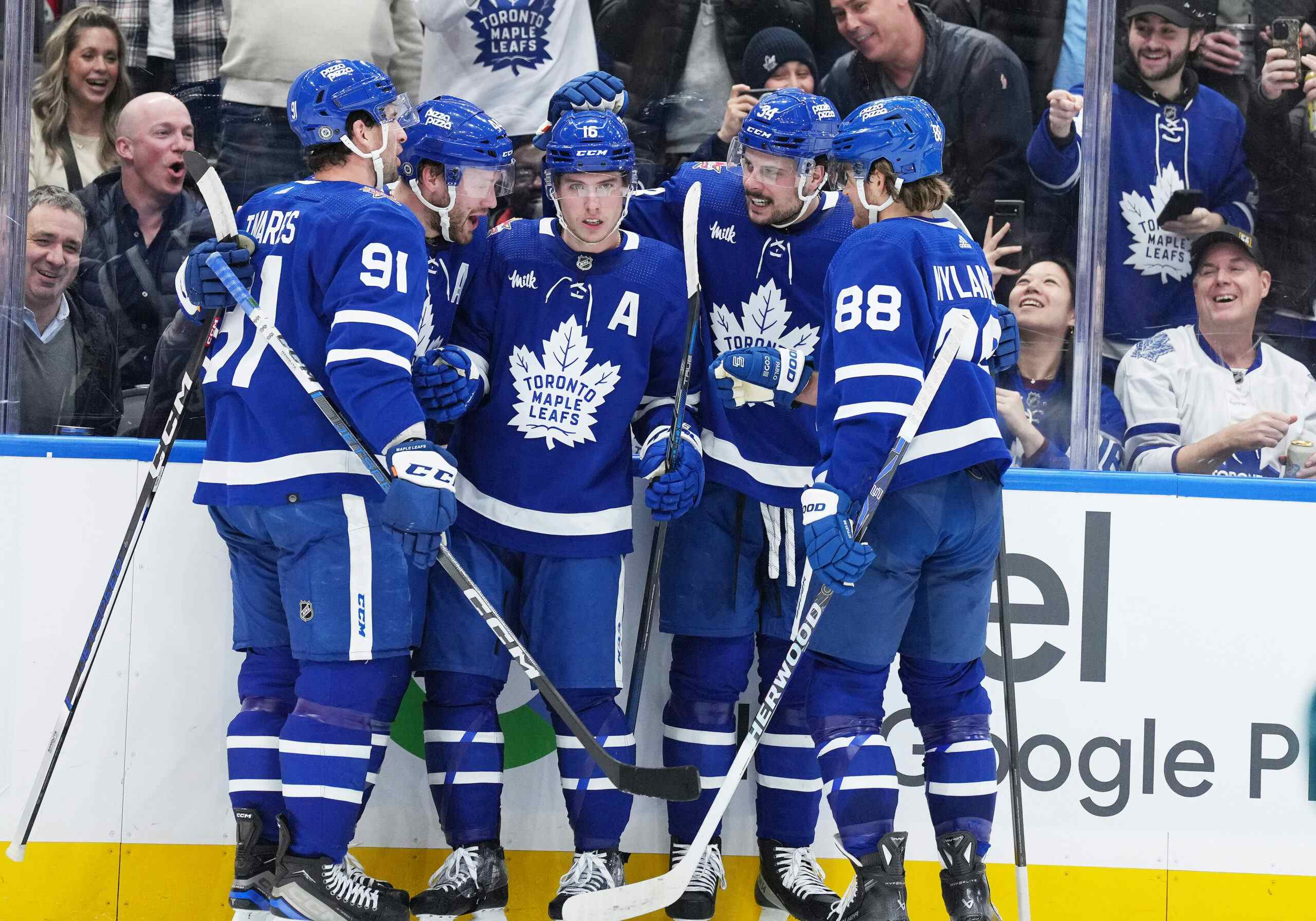To sign or not sign: Tyson Barrie

Tyson Barrie has been a polarizing player since he became a Leaf on July 1st last year. Many fans were upset because longtime Leaf Nazem Kadri went the other way. He had a poor start, although a certain coach could be to blame for that. Once Sheldon Keefe took over, he gave Barrie a chance to shine, and he briefly excelled before he got even more criticism. He shot too often for some people’s liking, he was a wreck defensively, stuff like that. It even reached the point where most fans were begging for him to be traded at the deadline for some kind of return at the cost of competing for a Cup.
Of course, that all ended up being for nothing, unless some form of a season can be salvaged, and as a result, the trade for him may have been a waste, although that is at the fault of nobody.
Unless, there is a chance he can be re-signed, and he can continue to be a Leaf. Let’s take a look at how Barrie did and what kind of contract he can demand in order to see if the Leafs should bring him back.
The Evaluation
Evaluating Barrie will be tricky, because his season is the tale of two defensemen. On one hand, he was terrible under Babcock, but as we later learned, that wasn’t his fault, as he became a lot more like Tyson Barrie under Keefe. The real question is if we even want peak Tyson Barrie.
In this evaluation, I’m going to include the last three seasons because it not only focuses on his more recent play, but it also gets rid of the statistical anomaly that was the 2016-17 Colorado Avalanche (they were bad, just not *that* bad).

via NHL.com
As far as point production goes, he was coming off of two seasons just shy of the 60 point mark with Colorado (and on pace for 68 and 62 points in those seasons) before falling quite short of that with the Leafs, as Barrie would’ve only hit 45 points if we got to finish this season. Now, part of that is because of Babcock, as Barrie had just seven points in 23 games under the former Leafs coach, and wasn’t exactly utilized properly either. Under Keefe, Barrie was a bit better with 32 points in 47 games, which would make for 55 points in a full 82 game season.
Now, point production isn’t necessarily the best way to evaluate a defenseman, but if they can generate points, that’s not a bad thing either, and Barrie’s pretty good at that.

via Evolving-Hockey.com
As far as the basic analytics go, Barrie appears to be, at best, pretty good. But, that also comes and goes with the skill of the team he’s playing with. At the very least, he’s good at driving possession in his favour, but it’s a lot more even when it comes to scoring chances for both teams. He’s not a black hole, but probably benefits playing with a player who is good at preventing chances (like Jake Muzzin).

via Evolving-Hockey.com
And here they are post Babcock. Most of his numbers stay the same or drop within a percent of his totals from 2019-20, but the noticeable difference is that he does see better results in expected goals, so he excels a bit more at generating chances under Keefe’s style of hockey.

And as far as his puck-moving ability, he’s very good at creating offense and contributing to the Leafs shot attempts, as well as entering the puck with the zone. He struggles a bit more with getting the puck out of the defensive zone, but not bad enough that it’s a concern.
So overall, Barrie is an excellent offensive defenseman and is usually good at generating scoring chances and goals. He doesn’t hold up the defense part of his title as well, as he’s mediocre at best when in the defensive zone, but he’s far from a terrible defenseman, and it can usually be offset by sheltering him against weaker competition or with a stronger partner.
The Money
Figuring out if Tyson Barrie is valuable enough to bring back is one thing, but figuring out how much money he’d be worth, if that’s the right value for him, and if it fits in with the Leafs’ cap both short and long term is a whole other story.
The easiest way to figure it out is to see what the rumours surrounding his extension is. The only time I’ve seen anything related to actual numbers regarding Tyson Barrie was Steve Simmons’ column back when the Leafs first acquired him saying he wants $8 million for 8 years, as well as Darren Dreger mentioning he’ll want a lot.
However, I wouldn’t call Simmons a strong source, and Dreger has always been questionable from time to time, so I’m not going to sweat this too much. Besides, this was all in July, and Barrie’s value has likely changed since then. But, this is the only form of “this is how much he wants” we’ve gotten, and if this is still his price, it’s an easy no. So, let’s take a bit more of a guess as to what it may be using the data available to us.
First, I used Evolving Hockey’s skater similarity tool to find players who played similarly to him over a three year span, and look at their next contract during or after this span using PuckPedia’s contract data.

The first thing that seems concerning is that some of these contracts don’t exactly jump out as amazing. Edler’s was fine, but he was also the cheapest and youngest of the bunch. Yandle’s isn’t bad, but it still has three more years after this where he will be 34, 35, and 36 on a cap-strapped Florida Panthers team. Seabrook’s is horrendously bad, and the 35 year old still has four more years left on it. But, what this tells us is that we should be cautious about extending a player who will be 29 years old at the end of the season.
If you average out the deals, it makes out to a seven year deal at just under a $7.1 million AAV, which would run until he is 36. That lines up almost exactly with the projected contract in Evolving Wild’s Contract Projection tool, as Barrie is estimated to get a $7,154,00 AAV over seven years.
Going off of this projected range, I probably wouldn’t give this kind of a contract to Tyson Barrie, even in a cap vacuum. The comparables are a bit of a concern as to how the contract will age, and we’d mostly just be paying for what he’s already done, and not what he will be doing. It’d be fine right now, but the back half (or more) will not be good.
Of course, this was all before the COVID-19 pandemic, which could have a negative impact on a lot of people’s contracts. It’s not completely out of the question for Barrie to maybe look at re-signing for cheapish on a one year deal with a team and system that he is familiar with and knows he can excel in, with the ability to regain any lost momentum and sign to a much better deal next summer than he would’ve gotten this year. It all depends on the market when free agency hits, but it’s still a factor.
Should They Re-Sign Him?
From a player standpoint, I would love to bring back Tyson Barrie. He may have his weaknesses, but overall, he’s a really good right-shot defenseman, which the Leafs have almost none of. He makes the team better, and helps their chances at contending for a Stanley Cup.
But from a logistics standpoint, it seems very unlikely. The Leafs projected cap space for next season is just above $4.5 million, and they still need to find a way to fit Travis Dermott, Ilya Mikheyev, Denis Malgin, Frederik Gauthier, and potentially even Jason Spezza under that. To make that work, they’d have to say goodbye to all of those players while also clearing cap space, whether that’s a Johnsson, a Kapanen, or even a Rielly.
Not to mention from a personnel standpoint, it’s hard to see where he fits in. Next season, we already have Rielly, Muzzin, Sandin, Holl, Marincin, Rosen, and Liljegren all signed to deals next season, with Dermott being the only RFA, as well as the recently signed Mikko Lehtonen. That’s nine defensemen contending for spots, and while only two of them are right shots, it doesn’t leave much room for Tyson Barrie.
The only way it would make sense to re-sign him is in the scenario I mentioned before of him signing a one year deal to regain momentum lost in the pandemic. Otherwise, there isn’t a realistic situation that sees the Leafs re-signing him.
Recent articles from Scott Maxwell





